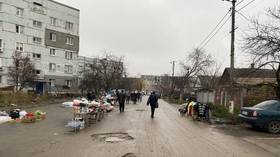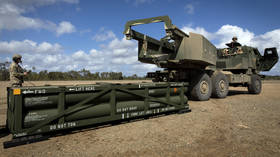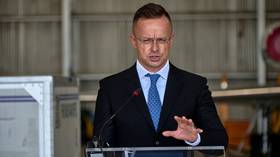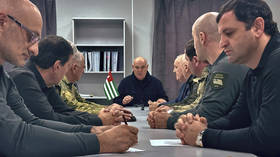Over 3,000 bodies of civilians recovered in Mariupol – investigators
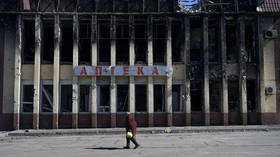
The criminal actions of Ukrainian troops during the battle for Mariupol resulted in thousands of civilian deaths, Russian investigators have claimed. Local authorities have reportedly recovered over 3,000 bodies of people who were allegedly forced by Kiev's troops to remain in the city while the conflict raged.
The figure was revealed in a statement by Russia’s Investigative Committee on Friday, after committee chief Aleksandr Bastrykin held a meeting in Mariupol with officials investigating alleged Ukrainian crimes.
The port city, located in the Donetsk People’s Republic (DPR), saw intense fighting between February and May, as Ukrainian troops were pushed back and encircled by Russian and DPR forces. Russia created humanitarian corridors to allow civilians to leave the city, but the Ukrainian side would not allow them to use the escape routes, Russian officials claimed.
“With no opportunity to leave the city, civilians moved around in search of food and became living targets for the Ukrainian punishers, who murdered them using various kinds of weapons,” the statement said.
In April alone, the bodies of 51 civilians were found at positions previously held by Ukrainian forces, while the total number of civilians found in the city was over 3,000, according to the prosecutors.
Russia has opened criminal cases targeting the people directly involved in the alleged transgressions as well as those above them in the Ukrainian chain of command. The list includes Gen. Valery Zaluzhny, the head of the country’s armed forces, according to the Investigative Committee. They are being probed for offenses related to the use of banned methods of war, with prosecutors collecting evidence of possible criminal orders to kill civilians and prisoners of war.
Officials remarked that identifying many of the victims was challenging. They suggested that people searching for missing relatives in Mariupol be urged to donate their DNA so that the samples could be compared against a database of samples collected from the recovered bodies.
